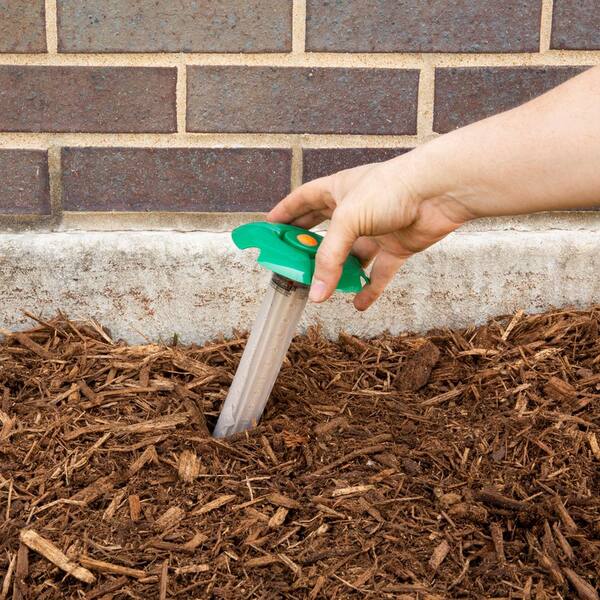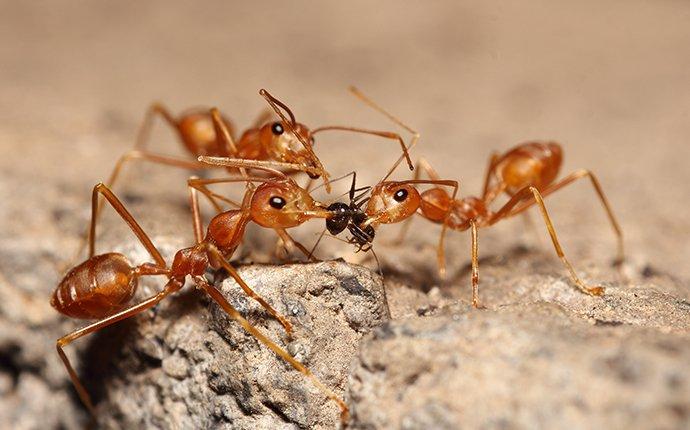Expert Ant Control Services: Custom-made Treatments for Lasting Outcomes
Expert Ant Control Services: Custom-made Treatments for Lasting Outcomes
Blog Article
Ecological Effect of Insect Control: Balancing Efficiency With Sustainability
The environmental effect of insect control is a crucial concern that requires a fragile balance in between attaining efficiency in ensuring and taking care of parasites sustainability of our ecological communities. From the usage of harmful chemicals that leak right into our soil and water to the unintended consequences on non-target types, the consequences of traditional pest control techniques are significant.
Unsafe Chemicals in Bug Control
The application of dangerous chemicals in insect control poses considerable ecological and wellness dangers that require careful consideration and reduction techniques. Insecticides, herbicides, and chemicals are generally used to get rid of pests, however their widespread application can lead to unintentional repercussions. These chemicals can pollute dirt, water sources, and the air, influencing not only the targeted parasites yet likewise beneficial insects, wild animals, and humans.

To resolve these dangers, incorporated insect management (IPM) techniques are being advertised as a more lasting option. IPM entails a combination of approaches such as biological control, environment control, and the targeted use pesticides as a last hope (ant control clayton nc). By embracing a holistic method to pest control, we can lessen the environmental and wellness impacts connected with damaging chemicals while efficiently managing pest populations
Influence On Non-Target Species
Considering the unintentional effects of insect control techniques, the effect on non-target species is a crucial element that needs complete analysis. While bug control steps aim to target particular bugs, other microorganisms in the ecological community might be inadvertently affected. Non-target types, consisting of valuable insects, birds, creatures, and also plants, can endure indirect or direct injury from pesticide applications or organic control methods.
Chemicals can have sub-lethal or deadly results on non-target varieties. Pesticides made to combat a certain insect pest may damage pollinators like bees or all-natural predators such as ladybugs. In addition, chemical deposits can accumulate in the environment, impacting non-target organisms in time. Biological control agents, if not species-specific, can position dangers to unexpected targets, disrupting the ecological balance.
To minimize the influence on non-target varieties, integrated insect monitoring (IPM) methods that stress an alternative method to pest control are advised. These methods focus on making use of eco-friendly techniques, minimizing damage to useful organisms while effectively taking care of pest populations. Conducting thorough threat assessments and keeping an eye on the outcomes of pest control efforts are important steps in securing non-target species and advertising overall environment wellness.
Dirt and Water Contamination
Unplanned ecological effects of parasite control approaches expand beyond impacting non-target types, with significant ramifications for dirt and water contamination. Chemicals, herbicides, and chemical fertilizers used in pest control can seep right into the dirt and pollute groundwater, posturing a risk to both aquatic and terrestrial ecological communities. Soil contamination can interfere with the equilibrium of microbes vital for nutrition cycling and plant growth, bring about lowered dirt fertility and productivity. Moreover, these chemicals can continue the environment for prolonged durations, collecting in the dirt and potentially going into the food web.
Water contamination is one more vital issue associated with pest control methods. To reduce dirt and water contamination from insect control activities, incorporated insect monitoring strategies that focus on sustainability and decrease chemical inputs are crucial.
Air Pollution From Pesticide Use
Direct exposure to airborne pesticides throughout agricultural applications positions a substantial worry for air contamination control steps. In addition, chemical drift, where pesticides are lugged by the wind to unexpected locations, can lead to the contamination of neighboring ecosystems and water bodies.

Approaches for Lasting Insect Control
In the world of farming practices, implementing sustainable insect control strategies is critical for keeping environmental equilibrium and safeguarding plant yields. Lasting parasite control highlights making use of eco-friendly approaches to take care of pest populations efficiently while reducing injury to non-target organisms and environments. Integrated Parasite Monitoring (IPM) is a widely taken on method that incorporates organic, social, physical, and chemical control methods to accomplish long-term parasite monitoring options.
One key method in lasting bug control is advertising biodiversity within agroecosystems. By enhancing natural enemies of parasites, such as parasitoids and predators, farmers can reduce the need for artificial pesticides. Plant rotation and diversification are also reliable strategies to disrupt Read Full Article pest life cycles and develop much less desirable problems for insects to flourish. Furthermore, using pest-resistant crop selections and employing strategies like catch cropping can assist lower bug stress without depending greatly on chemical treatments. Ultimately, by integrating these lasting bug control methods, farmers can attain an equilibrium in between pest management efficiency and environmental stewardship.
Conclusion
Finally, the ecological effect of bug control methods should be meticulously considered to balance performance with sustainability. Unsafe chemicals used in parasite control can result in soil and water contamination, air contamination, and injury non-target species - termite control. It is crucial to carry out lasting insect control methods to minimize these unfavorable results on the setting and promote a much healthier ecological community for future generations
By embracing an alternative technique to pest control, we can lessen the environmental and wellness effects associated with harmful chemicals while properly handling pest populations.

To minimize the air pollution caused by pesticide use, it is important to embrace integrated pest management approaches that focus on the use of non-chemical insect control techniques, such as plant rotation, natural killers, and resistant plant selections. Sustainable parasite control stresses the use of environmentally pleasant methods to take care of parasite populations properly while reducing damage to non-target microorganisms and ecosystems. Integrated Bug Management (IPM) is a widely embraced technique that combines biological, cultural, physical, and chemical control methods to achieve lasting parasite administration services.
Report this page